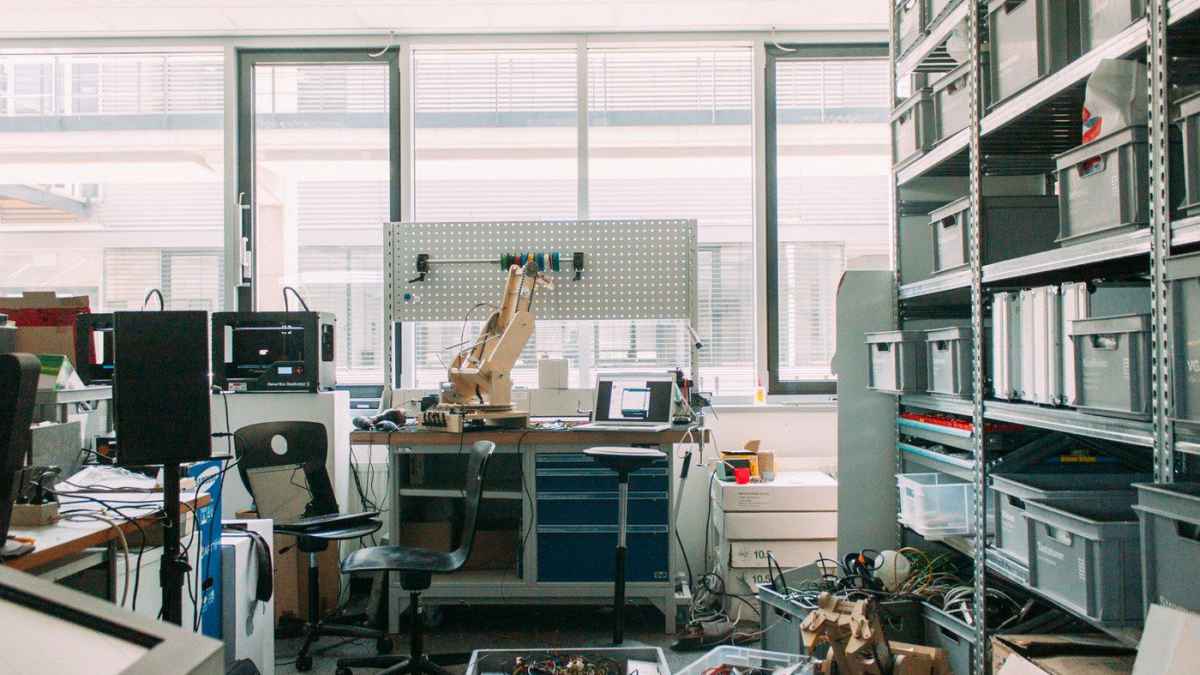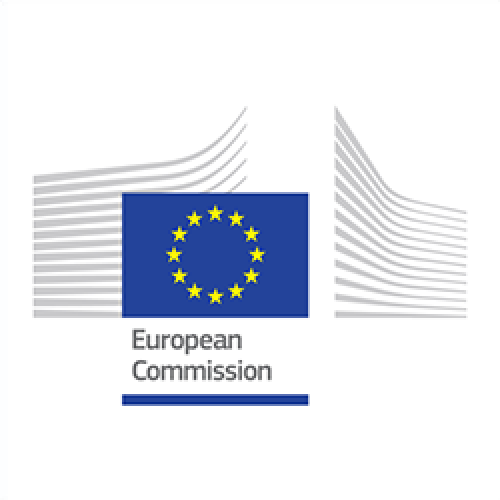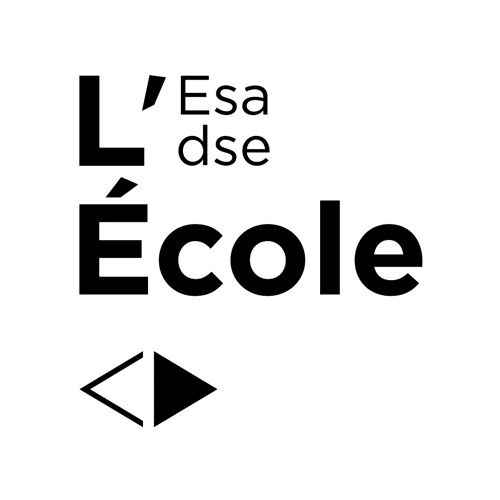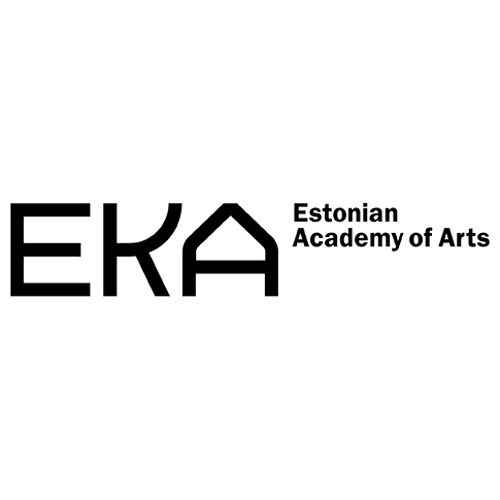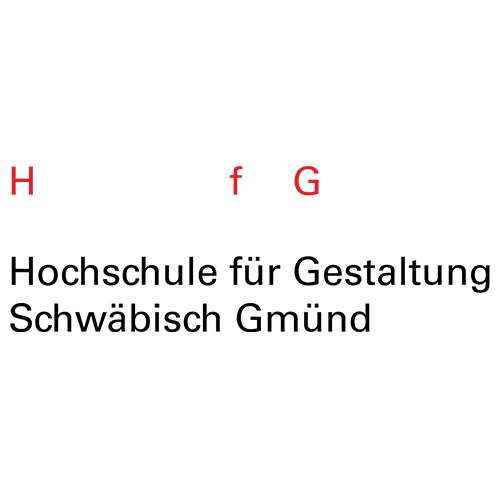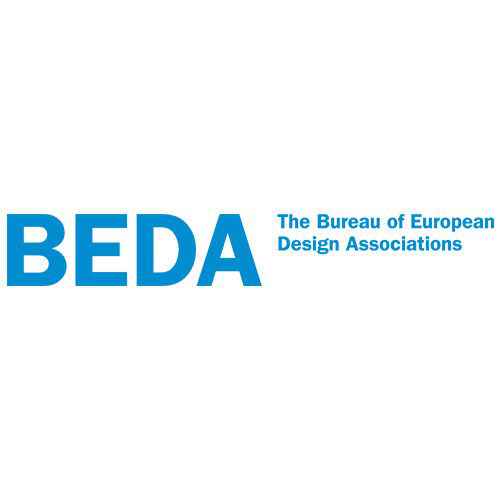Digital Tools for Creative Collaboration
A research project on digital tools for collaboration in art and design, led by Random(lab) in collaboration with three European partners
2021. At a time when Europe is ending lockdowns, Saint-Étienne Higher School of Art and Design (ESADSE), together with two international partners, the Estonian Academy of Art (EKA) and the University of Design Schwäbisch Gmünd, analyse the experience of the past year and a half and reflecting on how to reinvent art and design education in the post-covid era. In response to these questions, the Digital Tools for Creative Collaboration project was born, supported by the European programme Erasmus+.
Origin of the project (2020-2021)
Post-COVID challenges
Higher education institutions were extremely reactive to the conditions imposed by the health crisis of 2020-2021. They have managed, as best they could, to organise both remote teaching and administrative procedures. At the ESADSE, courses, evaluations and the entrance examinations have moved into digital space. The activity report states that "the commitment has been exemplary".
Thus, the school and its teams have succeeded in continuing, in remaining 'open', but... at what price? The transition took place in a flash. In an emergency situation, the teachers used the digital tools available, training themselves as they went along, often outside of working hours, without giving any in-depth thought to the origins of this software, Webapp, applications, etc., and without taking into account the needs of their pupils.
September 2021: back to "normal". At this point, we start to think about the experience we've all been through, without knowing that it's still far from over. The first observation is that we cannot yet measure the full impact of what happened. But there is a shared feeling that teaching has changed, and that it is impossible to carry on as if the crisis had never happened - so many questions have been raised by it. The second observation is that, while the tools used have made it possible to continue the term and stay in touch, they have not been a complete success.
The Erasmus+ call for projects
This is when an exceptional call for projects was launched under the Erasmus+ programme, aimed at finding solutions to the challenges raised by the health crisis and periods of confinement. It is organised into two thematic strands:
• "Preparing for digital education", to strengthen education and training systems to meet the challenges presented by the sudden transition to online and distance learning linked to the Covid-19 crisis.
• Partnerships for Creativity", to support the cultural and creative sectors, which have been particularly hard hit by the health crisis.
The Random (lab) team, together with the international relations team, decided to set up a European project to work for two years on the issue of digital tools for collaboration in art and design.
The project (2021-2023)
The Digital Tools for Creative Collaboration project is being led by Random (lab) of ESADSE with three partners:
• the Estonian Academy of Arts (EKA) (Estonia);
• the University of Design Schwäbisch Gmünd (Germany);
• the Bureau of European Design Associations (Beda).
Scheduled between May 2021 and May 2023, it aims to explore creative collaboration at a distance, its needs and pitfalls, in order to:
• equip students, teachers and staff of art and design higher education institutions with the necessary skills and tools, thus creating conditions for digital creative cooperation;
• raise awareness, through a critical approach, of the challenges of data processing, including data security and ecological threats.
In order to achieve these objectives, the consortium plans to:
• carry out exploratory research into digital practices in art and design higher education establishments;
• develop and test a series of web-based collaborative software prototypes for the creative sector;
• produce the publication 'New online and offline pedagogical realities in art and design;
• create a Toolkit - Online Platform and Exhibition.
The aims of the project are:
• to offer the possibility of improving the quality of teaching and creating new pedagogical approaches;
• to explore better creative collaboration at a distance to open the way for more intensive and fruitful cooperation between universities, whether national or international.
Achievements (2021-2023)
Three intensive international workshops, important milestones in the project, were organised to involve all interested participants in project cooperation. And several events highlighted the results of the projects and reached out to a wider audience, including:
• a conference and exhibition during the Biennale Internationale Design Saint-Étienne 2022 (France);
• the IxDA seminar in Tallinn (Estonia);
• the Internationale Seminar Woche (ISW) in Schwäbisch-Gmünd (Germany).
Partnership
One of the conditions of the Erasmus + programme is the presence of at least three partners from three different countries. Random (lab) of ESADSE addresses the Estonian Academy of Arts and the University of Design Schwäbisch-Gmünd in Germany, as well as the European Office of Design Associations (Beda), as an associate partner.
Random(lab)
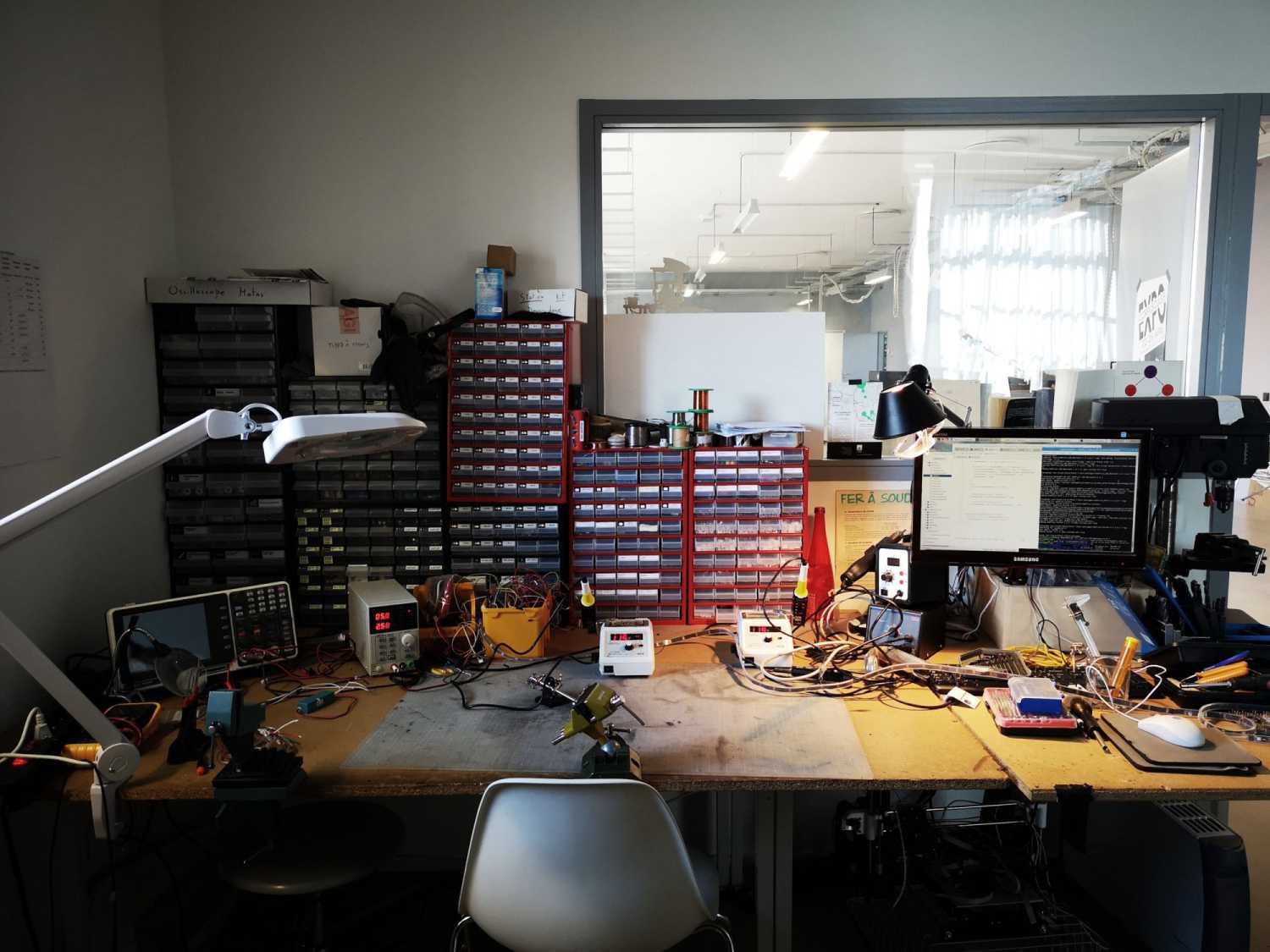
ESDASE's Random(lab) is a practical and theoretical research centre devoted to experimentation in art, design and digital technology. Open to Year 4 and 5 art and design students, post-graduate students and visiting researchers, it includes a resource centre and a workspace for creating and modelling interfaces and interactive installations using electronic components and Arduino-type platforms. The guest lecturers and students associated with Random(lab) also benefit from all the resources of the Esadse digital centre, both in terms of software and hardware. Random(lab) is based on the practice of project work as a foundation for research. The working hypothesis at the origin of each research project is examined through one or more projects that question it and put it to the test in a variety of creative ways. The aim of the work is not to understand or reproduce known processes or to stop there, but to go beyond them, towards experimental areas that will enable us to propose, open up and even redefine new areas for reflection and experimentation in art and design.
More info on Random(lab) (in French)
Eesti Kunstiakadeemia, Estonian Academy of Art
Founded in 1914, the Estonian Academy of Arts (EKA) is the only public university in Estonia providing higher education in the fields of fine arts, design, architecture, media, visual studies, art history and conservation. EKA is among the leading international centers of innovation in the field of visual culture. Currently, more than 1,200 students are enrolled at the Academy. The lecturers and teachers are professionals in their field - internationally renowned artists, architects, designers, historians and scientists.
EKA has close ties and cooperation agreements with over 100 international universities. More than 65% of EKA alumni have studied or interned abroad, participating in short or long-term mobility programs. The academy is a member of Cumulus (International Association of Universities and Colleges of Art, Design and Media), EAAE (European Association for Architectural Education) and, through Nordplus, many professional networks.
For this project, we will work with IxD.ma, one of the Academy’s international master’s program. This program focuses on human interaction with services, products and experiences.
The breakneck advances in technology have led to the next industrial revolution. For the first time in recent history no-one knows how the future is going to look like. Interaction Designers are in the center of this transformation: it is in our hands to create the future that is based on human values, needs and behaviours.
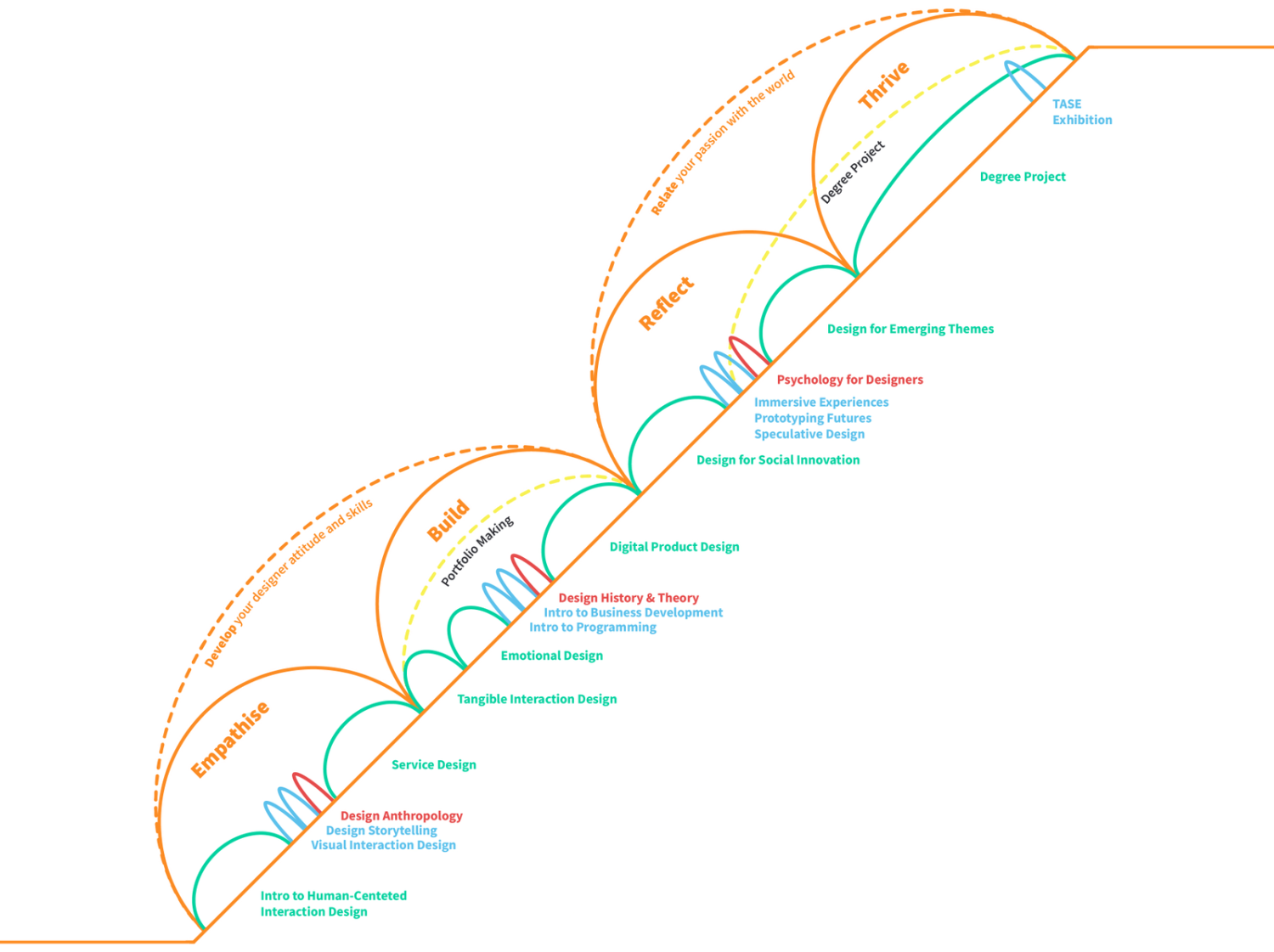
Hochschule für Gestaltung University of Design Schwäbisch-Gmünd, HfG
With about 700 students, the University of Design (Hochschule für Gestaltung, HfG) in Schwäbisch Gmünd is one of the smallest universities of applied sciences in Germany. Despite its size, the HfG has an international profile, thanks to many years of internationalization activities and its very successful participation in the Erasmus+ program. The HfG Schwäbisch Gmünd focuses solely on design programs.
The HfG Schwäbisch Gmünd sees design as an innovative discipline with scientific, social and technical references. This discipline contributes to influencing cultural, technical and economic developments in a responsible and sustainable way. The university deliberately dispenses with artistic or craft prerequisites to teach the basics of design. The five study programs, on the other hand, are based on scientific knowledge and the rational justification of design decisions.
In addition, the school has been involved in the global Cumulus network of design, art and media colleges and has shaped the development of Cumulus through its long-standing membership of the board of directors. The HfG also promotes new forms of international cooperation. Either through joint teaching projects or through learning and research, for example within the framework of the Erasmus “strategic partnership” project.
The Bureau of European Design Associations, BEDA (associated partner)
BEDA is a non-profit organization. It was founded in 1969, at a time when the impact that designers could have on business was little known and poorly understood. BEDA brought together professional design associations from all over Europe, generally providing information about the design industry, which was very young at the time. It also helped to promote design in business.Today BEDA continues to be deeply involved in European policy making. It wants to promote design as a tool for industrial and societal innovation, which is essential today and in the future.Within the framework of the project, BEDA participates in the Digital tools for creative collaboration project in several ways:- making the project's productions available to its members at its events or offering them to these members- disseminating information about the project, its actions, calls, events to its members,
BEDA thus contributes to the implementation of the project, but also to its dissemination and sustainability.
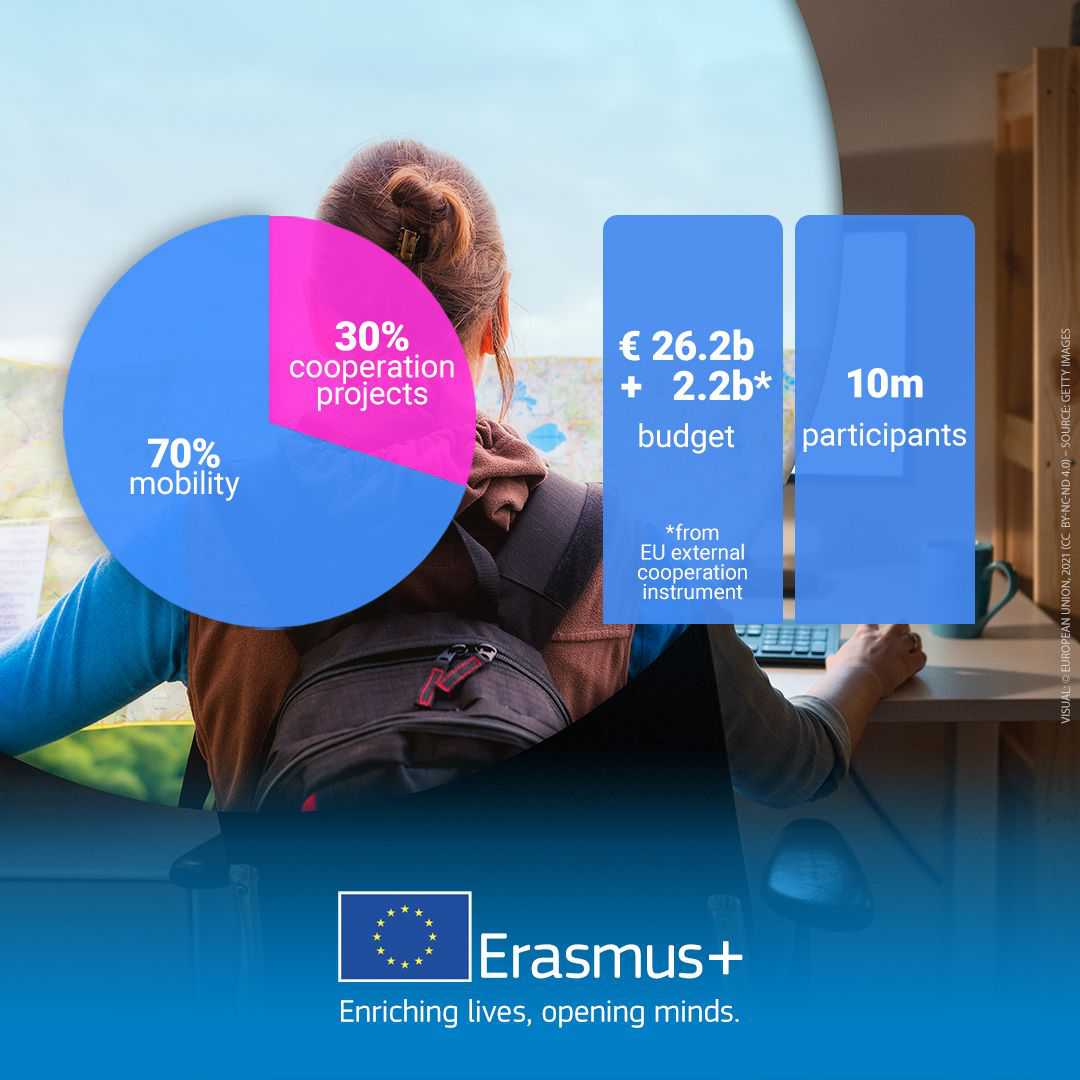
Project funded by the European Union. The views and opinions expressed are those of the author(s) and do not necessarily reflect those of the European Union or the European Executive Agency for Education and Culture (EACEA). Neither the European Union nor the EACEA may be held responsible for them.
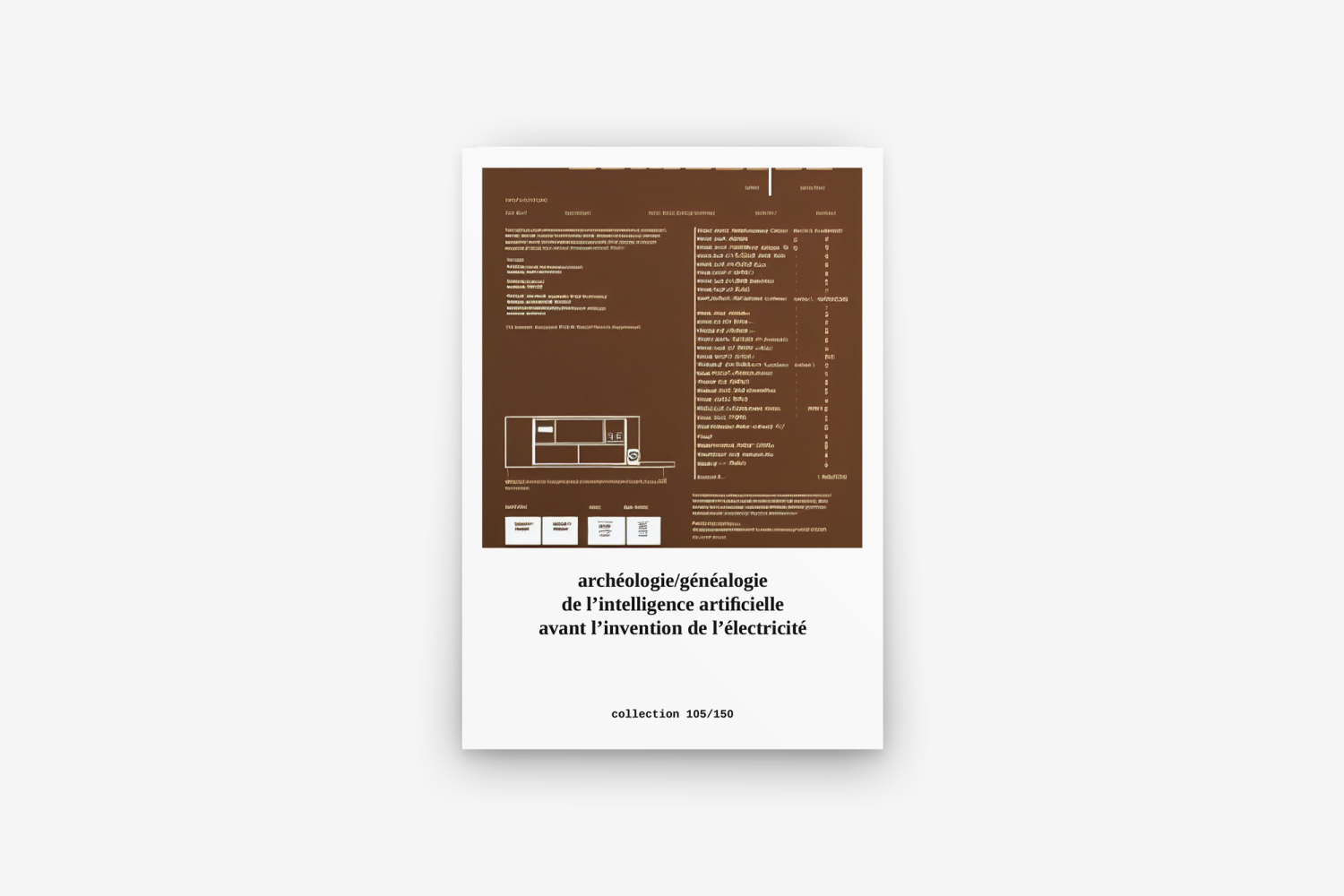
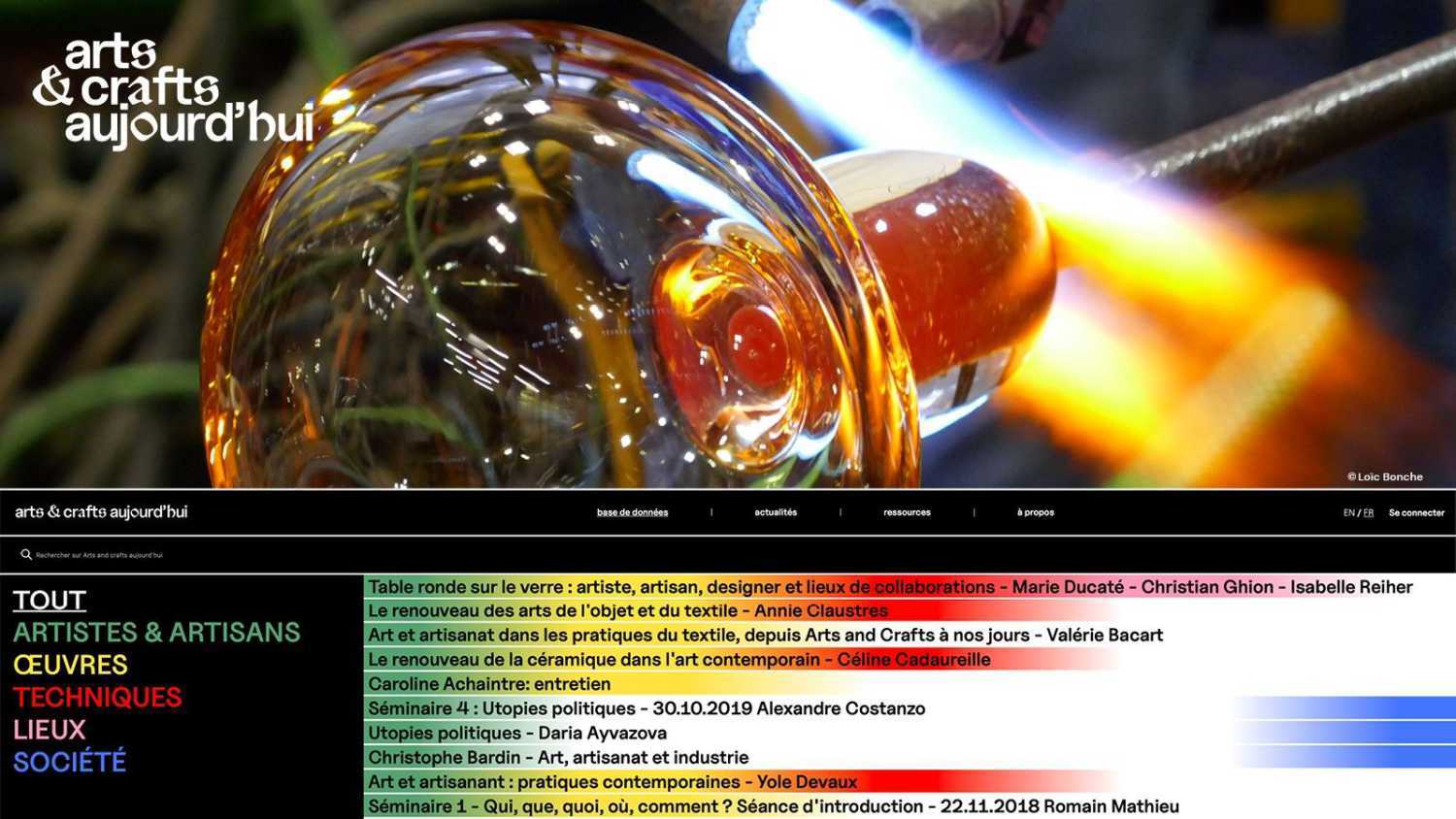
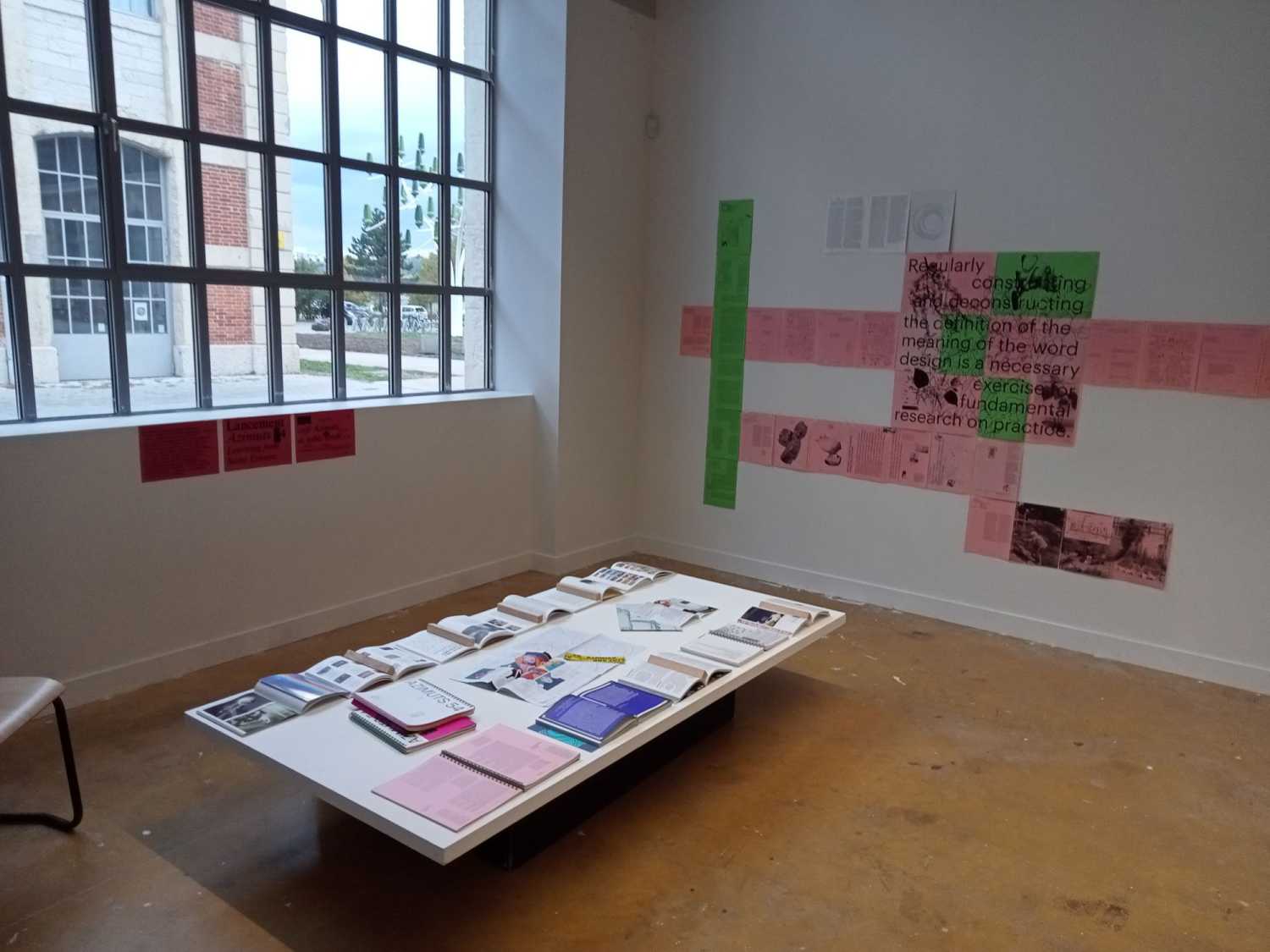
Se permettre l’écriture chez les designeur·euse·s, artistes et/ou chercheur·euse·s (☀✬❀)Revue Azimuts - Design Art Recherche
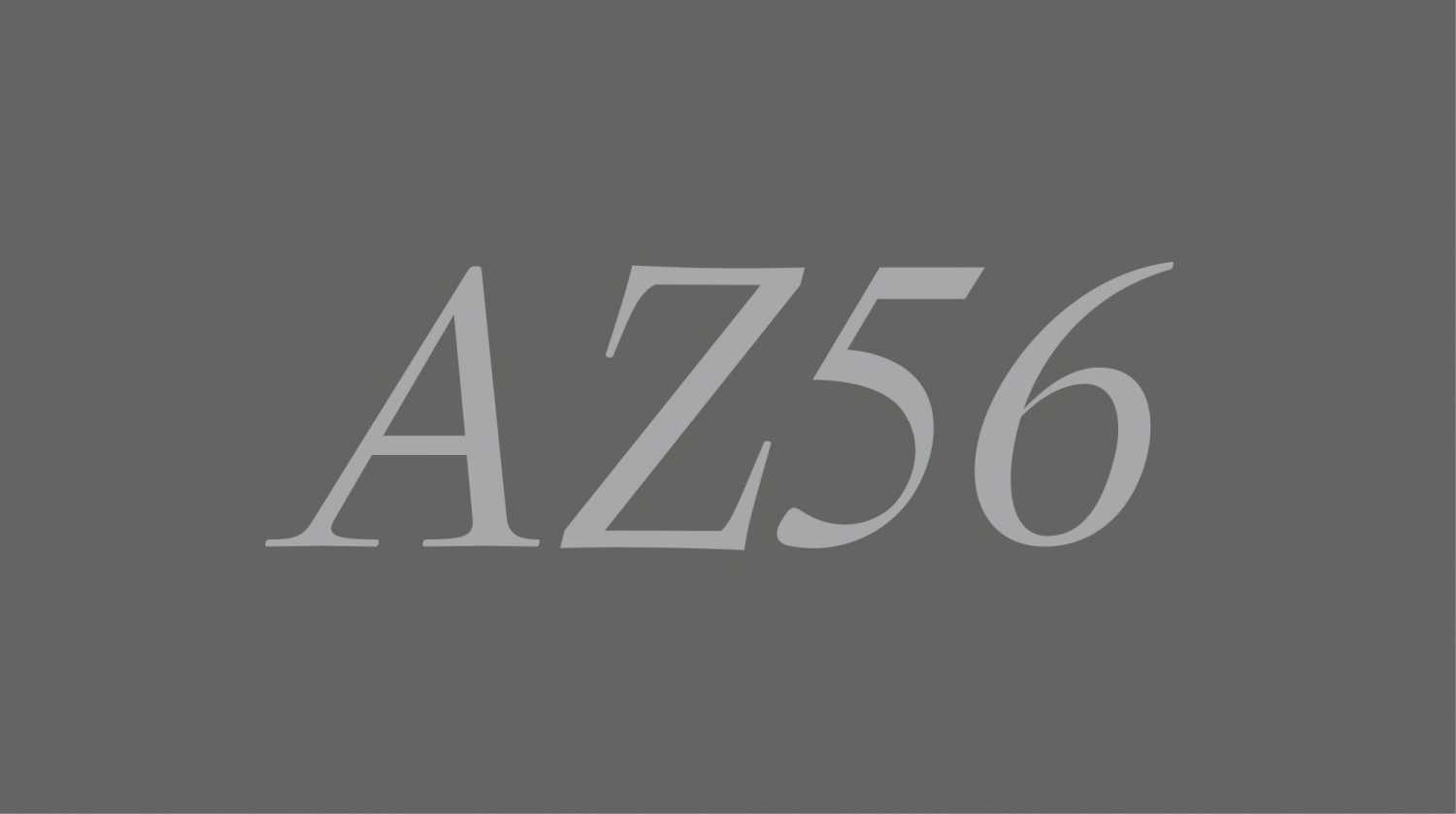
Votre navigateur est obsolète, l’affichage des contenus n’est pas garanti.
Veuillez effectuer une mise à jour.
